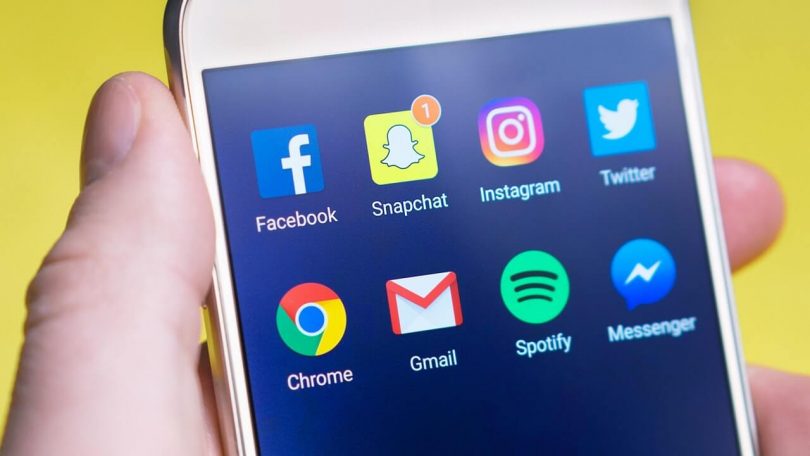The enforced social isolation we’re currently experiencing as a result of the Coronavirus pandemic means many of us have more time on our hands.
What better time to step back and take a look at your digital marketing so that when things return to normal, you’ll be set up for even greater success.
What is Digital Marketing?
Digital marketing comprises all the activities you undertake to promote your business in the online world. Your website functions as the hub for all that you do and many of your marketing activities will focus on driving people to it. Activities are likely to include Search Engine Marketing (SEM), Search Engine Optimisation (SEO) and Social Media Marketing.
You may have outsourced your digital marketing to a specialist company who are performing all the necessary activities for you. This could be a great time to assess whether you’re achieving the outcomes you’re looking for. You can also consider taking on these activities yourself or training a staff member to look after them for you.
Digital marketing specialists have the expertise in this field but because they handle multiple clients simultaneously, they can never live and breathe your business as you do. The most effective voice for any business is its own and engendering a close relationship with your digital marketing agency will help them represent you authentically.
Your Website
Website designs are varied and design trends change with time. Designing a website doesn’t necessarily require any expertise in coding but rather the ability to write good content, select strong images and lay it out in the most attractive manner. Various web design platforms exist and provide templates so all that is required from you is the content.
You might use Squarespace, Wix or WordPress but there are plenty of other platforms out there. Using a predefined template means that you don’t have to concern yourself with the page layout or the choice of fonts and colours. Thousands of templates are available and when you need photographs for your site you can use your own or purchase stock images.
Search Engine Marketing
Pay Per Click Advertising (PPC), or Search Engine Marketing (SEM), is about placing ads in front of people on various online platforms. The most popular Search Engine Marketing platform is Google Ads, following by Microsoft Advertising. You are charged each time one of the ads is clicked, regardless of whether the click results in your desired outcome. The click will normally take the prospective customer to a page on your website known as a landing page. From there the functionality of your website should enable them to take the next step. This could be to call you, fill in an online form or make a booking.
When someone types a search term into their search engine, they are presented with a page of results known as the Search Engine Results Page (SERP). They will often find the first three or four results are the paid advertising results. These are identified with the word Ad at the beginning of the text.
As an advertiser, your goal is to be amongst the top results presented on the SERP. To be in one of those positions you are bidding against competitors who also want to be there. The Google or Microsoft platform provides all the functionality so you can create the wording for your ads (the ad copy), define how much you’re willing to pay for each click and set up lists of keywords that you’d like to use to trigger the display of your ads.
Also widely used is Facebook Advertising which is more straightforward to set up. In Facebook Advertising the ads are triggered not by keyword searches but by other factors defined by the advertiser. These include the location and demographic of the targeted Facebook user.
Search Engine Optimisation (SEO)
The purpose of Search Engine Optimisation is to ensure your website will be one of the top results that appears in the ten organic results displayed on the first Search Engine Results Page. These results are likely to appear below the paid advertising, the local business results and any featured snippets.
SEO involves the activities you undertake to ensure your website will be one of those displayed on the SERP. SEO involves what is known as on-page and off-page techniques. The on-page activity is about writing the best and most descriptive content possible so when people type in their keyword, the search engine (normally Google or Bing) considers the content on your website to be relevant for the searcher. Your content should include key words related to the search performed but shouldn’t read artificially in your effort to stuff those keywords into the text.
Off-page SEO is about building a profile on the internet such that your website is not an island. The credibility of your website is enhanced if there are references to it from other authoritative sites on the web. These references or links are known as backlinks and are a means by which search engines assess which websites to display in their results each time a search is performed.
Google looks for high levels of Expertise, Authoritativeness and Trustworthiness (E-A-T) in order to rank pages highly and it takes time to build the reputation of your brand and your website. While the use of SEM can enable you to have your page appear instantly at the top of search results pages, SEO is a long term activity likely to require months or possibly even longer to achieve the desired results.
Social Media
The third arm of digital marketing is the use of Social Media. Various channels exist, primarily Facebook, Instagram, LinkedIn, Twitter and YouTube. You may already be using one or all of these. The basic concept is that you post regular content to your social media channels with the objective of driving the consumer of the content back to your website, or directly to your business.
In order for Social Media marketing to be effective you need to build a following. You can begin to achieve this by emailing your customers following completion of jobs for them and asking them to like, follow or share your page. If you haven’t already done so you could also email your previous customers asking them to do likewise. It takes time to build a following and it may be advisable to focus on one social media channel or publish similar content on multiple channels simultaneously. However, it is important to be wary of bombarding followers with too much content and seek to find the appropriate balance.
This post has only scratched the surface of digital marketing but hopefully you feel more informed about the basic concepts. Any or all of the elements I’ve discussed are things which you can do yourself, or which you can outsource to a specialist digital marketing company. How you choose to do this depends on yourself, your level of confidence in taking any of this on. At the very least you should now be able to speak some of the same language as your digital marketing specialist.







